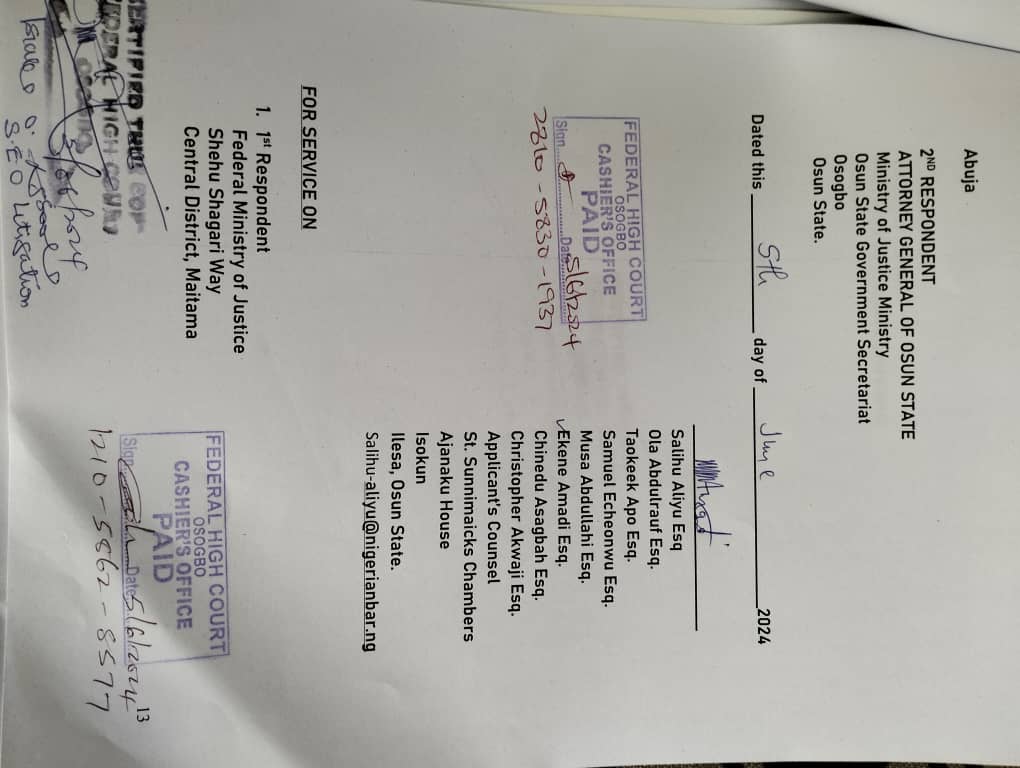
A plea has been made by a member of the Osun State House of Assembly, Kanmi Ajibola, who represents Oriade State Constituency, against the ruling of the Federal High Court in Osogbo. This ruling prevented him from offering free legal aid to underprivileged individuals facing criminal charges in court.
Kanmi, a legal practitioner and former Chairman of the Nigerian Bar Association (NBA) in Ilesa, had requested permission from the court (in suit No. FHC/OS/CS/42/2023) to continue providing pro bono legal services while also serving as a lawmaker.
The case was dismissed by Justice Nathaniel Ayo-Emmanuel, stating that the lawmaker’s request violated the 1999 Constitution, which prohibits public officials from engaging in activities that serve their personal interests.
Unsatisfied with the initial court decision, Ajibola lodged an appeal with the Court of Appeal in Akure, citing seven grounds for the appeal.
In his appeal, he contended that the judge misconstrued the law by focusing solely on one aspect of the case and not considering all relevant facts.
Ajibola argued that his pro bono legal services, which he has been providing since 2000, are a matter of public interest, rather than being driven by personal gain or profit.
He explained that his reason for taking legal action was due to facing threats whenever he attempted to defend individuals facing false criminal charges who could not afford legal representation.
He also highlighted that neither of the respondents, the Attorney-General of the Federation nor the Attorney-General of Osun State, disputed this claim.
In addition to criticizing the lower court’s interpretation of constitutional provisions, Ajibola emphasized that the court failed to acknowledge the positive impact of his NGO, the Prisoners Aid Initiative, which he established in 2008.
Through this NGO, he has helped numerous inmates with free legal services and contributed to government efforts in alleviating prison overcrowding.


